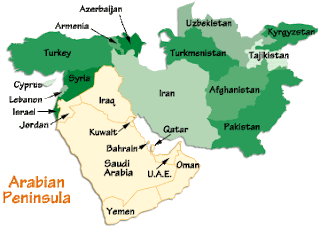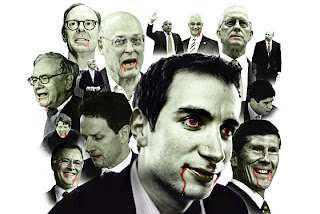The End of the Cold War
The Lessons of 1989 by Hitchens
20 Years of Collapse by Slavoj Zizek
Post-Wall by Slavoj Zizek
Velvet Revolution: The Prospects by Timothy Garton Ash
Hitchens mentions something I found surprising the first time I heard about it.
Even more appalling was the 12-fold increase in the GDR's [German Democratic Republic] national debt--a situation so grotesque that it had been classified as a state secret lest loans from Western creditors dry up. "Just to avoid further indebtedness," wrote Schürer, "would mean a lowering next year of living standards by 25 to 30 per cent, and make the GDR ungovernable."Why would people loan to and borrow from their mortal enemies?
Timothy Garton Ash:
Twenty years later, in the summer of 2009, the Islamic Republic of Iran staged a show trial of political leaders and thinkers it accused of fomenting enghelab -e makhmali--that is, precisely, velvet revolution. Across the intervening years, dramatic events in places including Estonia, Latvia, Lithuania, South Africa, Chile, Slovakia, Croatia, Serbia, Georgia, Ukraine, Belarus, Kyrgyzstan, Lebanon, and Burma were tagged with variants of adjective + revolution. Thus we have read about singing (Baltic states), peaceful, negotiated (South Africa, Chile), rose (Georgia), orange (Ukraine), color (widely used, post-orange), cedar (Lebanon), tulip (Kyrgyzstan), electoral (generic), saffron (Burma), and most recently, in Iran, green revolution. Often, as in the original Czechoslovak case, the catchy labeling has been popularized through the interplay of foreign journalists and political activists in the countries concerned.And yet the "antiwar" left finds this all uninteresting.
Masterpiece Theater's Endgame.
Life After the End of History by Ross Douthat
It takes a certain amount of moral nihilism to write something like this:
On the left, there’s an enduring fascination with the pseudo-Marxist vision of global capitalism as an enormous Ponzi scheme, destined to be undone by peak oil, climate change, or the next financial bubble.Nothing's destined but he seems weirdly oblivious of what happened last year.
Ezra Klein had a nice catch here:
Ross Douthat, for instance, says it will be "offensive when Obama takes the stage in Oslo this November instead of Morgan Tsvangirai, Zimbabwe’s heroic opposition leader." By that same logic, it seems a bit offensive for Douthat to spend his column arguing that Obama should give back the Nobel rather than devoting his column to the struggles of Tsvangirai, who has never before been mentioned in one of Douthat's op-eds.Douthat would rather take up precious column space bashing liberals rather than write about Tsvangirai or, say, Aung San Suu Kyi.









